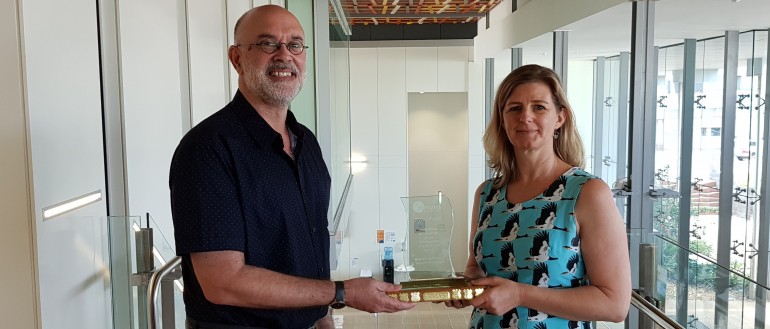Dr Marita Hefler’s health research career began in 2005 at a health service for young people in Sydney who were homeless or at risk of homelessness.
“I was a health promotion officer, and one of the projects I ran was a trial to provide nicotine replacement therapy patches and gum to help young smokers to stop smoking,” Marita said.
“The experience was an education in understanding smoking is a social justice issue.”
Smoking is much more common among people who have low income, unemployment and a history of disengagement from school and education, as well as people who experience mental illness.
“The young people I worked with often came from backgrounds of complex trauma from early childhood. Others were from groups that face discrimination and marginalisation – for example, refugees from African countries, and young people with diverse gender and sexuality identities.”
The health service was located close to Redfern and had many Aboriginal and Torres Strait Islander clients from all over Australia. First Nations peoples in Australia have very high smoking prevalence, which is closely connected to ongoing colonisation and racism.
Wanting to understand more, Marita soon embarked on a PhD that explored the smoking pathways of highly marginalised young people. The study brought together her passion for social justice and determination to contribute to reducing smoking. Smoking is a leading contributor to premature death in Australia and the health gap between First Nations peoples and non-Indigenous Australians.
In 2013, Marita moved to Darwin and joined Menzies where she is now a senior research fellow. Working in the NT, she has continued research practices that she started during her PhD. She has worked closely with Aboriginal community-controlled health services to design effective approaches for using social media to reduce smoking, examined the impact of smoke-free prisons policy, and done several projects on youth health and wellbeing.
In addition to her own research interests, Marita has supervised or co-supervised two postgraduate student theses, and currently supervises six students including four PhDs. She teaches in the Menzies Master of Public Health and has included a Certificate II in Community Health Research in a project she led, which saw 13 community-based researchers receive this certification.
“I love the teaching side of my job. Nurturing the development of new and emerging researchers is incredibly rewarding, and also important for building strong relationships with people who are experts about their own communities. Education is also a path to addressing social inequity and inequality.”
Earlier this year, Marita was recognised for her commitment to mentoring and developing an equitable, nurturing research environment, along with her research successes, receiving the Ryan Family Prize, an annual internal award that recognises outstanding contributions to Menzies. And she shows no signs of stopping this important work.
“Having worked on various programs to reduce smoking for over 15 years, I increasingly believe it is time to end the sales of cigarettes altogether. The tobacco industry is the only industry that is allowed to continue to sell such a lethal product. I am working with communities to find ways to do this.”

